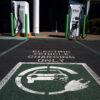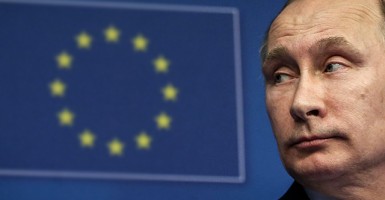WARSAW — Quite suddenly, what Poland does and doesn’t do has become crucial to the United States and the Western alliance.
As the next-door neighbor of Ukraine and with uncertainty about Russia’s next aggressive move, Poland matters.
Adjoining as it does the three Baltic countries of Estonia, Latvia and Lithuania — all prime targets of Russian President Vladimir Putin’s imperialist design — Poland matters.
As the largest, most prosperous, and most entrepreneurial member of the old Warsaw Pact, Poland matters. As evidence of Poland’s economic viability, it was the only member of the European Union not to fall into recession after 2008.
America and the West need Poland as a leader to stand firm against Putin’s “peace” policy in which, like Stalin, he takes a piece of that country, then a piece of that country.
Based on a 72-hour whirlwind trip and meetings with Polish government officials, former parliamentarians, think tank officials and policy analysts, I can report that Poland is ready for the challenge. I was in Poland as a guest of PAFERE, the Polish American Foundation for Economic Education, which, under the direction of Pawel Budrewicz, is working hard and successfully to bring together Polish think tanks committed to free markets and conservative values. Here are some of Poland’s recent actions in support of a free and independent Eastern and Central Europe.
Ukraine, Lithuania and Poland have signed an agreement to form a joint peacekeeping brigade which will be based in Lublin, Poland, and will include some 3,000 troops.
Polish Prime Minister Donald Tusk has been named the new president of the European Council, in which position he can be depended to push for a firm policy against Russian territorial aggrandizement. Tusk is a quiet but strong-willed politician from Gdansk, the birthplace of the Solidarity trade union movement and Poland’s anti-communist uprising against the Soviet Union.
Poland has endorsed the U.S.-NATO decision to implement stricter economic sanctions against Putinist Russia, despite Poland’s dependence upon Russia for much of its energy needs.
Poland understands those who ignore history are doomed to repeat it, and it is determined there will not be another “Warsaw Pact” run out of Moscow.
Commenting on Tusk’s election as EC president, one British newspaper wrote that it was “a coming of age for Poland.” I would say that in the 25 years since the collapse of Soviet communism, Poland has repeatedly demonstrated its political and economic leadership. It remains for the rest of Eastern and Central Europe to follow her lead at this critical time and for the United States to recognize that Poland has become the cornerstone of a region vital to America’s strategic interests.






























